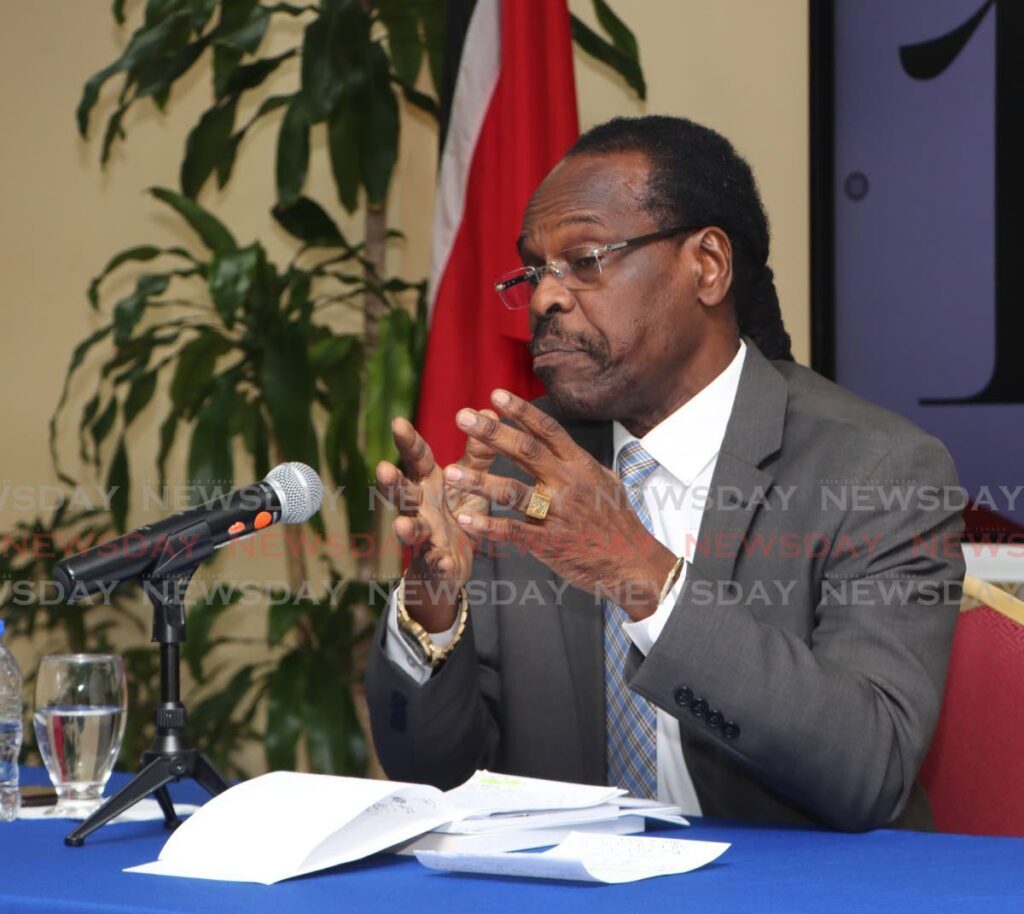Brazen hospital attack exposes security lapses

THE EDITOR: While Minister of National Security Fitzgerald Hinds stresses the importance of community co-operation in combating crime, it is crucial to highlight that his remarks might come off as placing undue responsibility on the citizens for gang-related violence. Here are some points from the article in the June 3 Newsday that suggest the minister and the TTPS could do more to fulfil their duties:
Security lapses at the hospital
The shooting at the Port of Spain General Hospital indicates a severe security breach. The fact that gunmen could follow the injured victims to the hospital and execute another attack suggests inadequate security measures and response protocols at a critical public facility. Ensuring the safety of hospitals, especially after violent incidents, is a basic expectation from the authorities.
Gang-related violence
Snr Supt Rishi Singh identified the incident as gang-related. Where is the Anti-Gang Act? Is it being utilised to deal with the escalating gang violence in the country. Are there effective strategies to dismantle gangs, improve community policing and provide alternative opportunities to at-risk youth. These are essential responsibilities of the Ministry of National Security and law enforcement agencies.
Resource allocation and policing strategies
Hinds mentioned that "every minute of every day the police are busy pursuing illegal firearms." Despite this claim the incident demonstrates that illegal firearms are still readily accessible to criminals. This points to potential shortcomings in current strategies for gun control and interdiction. The ministry must ensure that adequate resources, training and intelligence are available to the police to effectively combat these threats. Stop blaming guns coming from the US. Stop them at our borders.
Public confidence and trust
The minister’s comments suggest a reliance on public information for law enforcement success. However, for citizens to feel safe reporting crime there must be a foundation of trust in the police and the judicial system. This trust has been eroded because the public perceives that the authorities are not adequately protecting them and there is fear of retaliation from criminals. Strengthening this relationship is a key responsibility of Hinds's Ministry of National Security.
Proactive versus reactive measures
The incident illustrates a reactive approach to crime – addressing violence after it occurs rather than preventing it. Effective crime prevention requires proactive measures, such as community engagement, crime deterrence programmes and socio-economic initiatives to reduce the factors that lead to gang involvement.
While community co-operation is indeed vital in addressing crime, the primary responsibility for ensuring public safety lies with the Ministry of National Security and law enforcement agencies. The minister and the police must enhance their strategies, ensure robust security measures, and build public trust to create a safer environment for all citizens.
The Government needs to get serious about dealing with crime. It's high time to stop making excuses.
ANTHONY GULSTON
via e-mail

Comments
"Brazen hospital attack exposes security lapses"